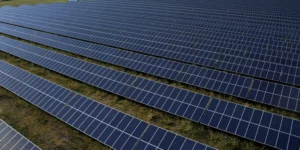 (888) 895-1776
(888) 895-1776
 Alex Stone
Alex Stone  Feb 21, 2023
Feb 21, 2023  0 Comment
0 Comment As the world continues to search for renewable and sustainable energy sources, photovoltaic (PV) solar power is becoming an increasingly popular option. But what exactly is PV solar energy and how does it work?

What is Photovoltaic Solar Energy?
PV solar energy is a form of energy that is generated by converting sunlight into electricity. This is achieved using solar panels, which are made up of photovoltaic cells. When sunlight hits these cells, it triggers a chemical reaction that releases electrons. These electrons are then captured and transformed into usable electricity.
How Does PV Solar Energy Work?
PV solar energy works through a process called the photovoltaic effect. When sunlight hits the photovoltaic cells in a solar panel, it knocks electrons loose from their atoms. These electrons then flow through a circuit, generating an electric current. This current is then passed through an inverter, which converts it from direct current (DC) to alternating current (AC), making it suitable for use in homes and businesses.
What are Solar Panels Made Of?
The solar panels themselves are made up of photovoltaic cells, also known as solar cells. These cells are made of silicon and other materials that allow them to absorb the photons and generate a flow of electrons. The cells are arranged in a series-parallel configuration to increase the output voltage and current. The electrical energy produced by the solar panels is then stored in batteries or fed directly into the electrical grid.
What are the Benefits of PV Solar?
One of the main benefits of PV solar power is its ability to generate energy even in cloudy conditions. While the panels are most efficient when exposed to direct sunlight, they can still produce energy when the sun is partially obscured. This makes solar power a reliable energy source that can be used even in areas with less than ideal weather conditions.
Another benefit of PV solar power is its eco-friendly nature. Unlike fossil fuels, solar power does not produce harmful emissions or contribute to climate change. This makes it an ideal energy source for those looking to reduce their carbon footprint and protect the environment.
Lastly, as component costs have decreased over the years, PV solar is now one of the cheapest sources of energy.
Conclusion
Photo voltaic solar power is a simple yet effective way to generate cheap, clean, renewable energy. With its ability to produce energy even in cloudy conditions and its eco-friendly nature, solar power is changing the energy landscape and providing a sustainable solution for the future.